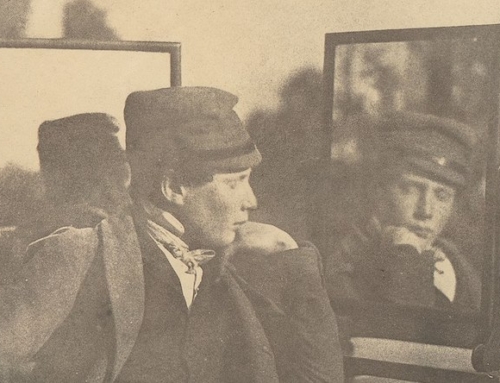I’m having an absolutely terrible day. I feel awful!
Why, you ask?
Well, I bombed that exam I studied so hard for, which means I’ve blown my shot of getting that scholarship.
Then I had a conversation that didn’t go right, and now I’ve offended my friend and damaged our relationship.
After that, I made a big mistake at work; my boss is furious and I am humiliated.
Later, I spilled spaghetti sauce all over my clothes, making a public fool of myself!
Pretty bad, huh? But I haven’t even told you the worst part yet: on top of all that, I’m a Christian.
What’s so bad about that? You see, the Lord Jesus commands all Christians to “be perfect, just as your heavenly Father is perfect” (Matt 5:48). As is clear from my horrendous day, I am far from perfect! So, it seems like one of two things must be true: either 1) I have sinned against God’s command by failing to be perfect, or 2) God is commanding me to do something impossible, namely, to be perfect. Either way, I’m in a sorry lot.
The first option can’t be true, since no sin of mine caused my awful day. Trying one’s best and failing, inadvertently hurting a friend, unintentionally making a mistake, accidentally spilling food—these are not sins. Sins are always free choices, and I certainly didn’t choose any of these things to happen! In fact, I was trying to do just the opposite! I was trying to be perfect, but I failed.
Thus, I turn to the second option: God commands perfection, but try as I might, I simply cannot achieve perfection. God has unlimited power and knows everything, so he always acts perfectly. I am only a man; I am certainly not all-powerful or all-knowing, so it is impossible for me to always act perfectly. I struggle with temptation, unruly emotions, weakness, fatigue, ignorance, misjudgment, misunderstanding, and the like. Some of these things are the unhappy result of living as a fallen man in a fallen world damaged by sin. Yet, even if mankind never fell into sin, humans would still have some of these limitations. Only God has unlimited perfection. All created beings, humans included, are naturally limited and imperfect, so it is impossible for a human to be perfect in the same way that God is perfect.
What, then, is God commanding when he says, “Be perfect, as your heavenly father is perfect”? Is he really commanding the impossible? No, of course not. Although man cannot become equally perfect to God, man can become perfect as God is perfect. To be equally perfect to God would be to become God, which is impossible. To be perfect as God is perfect would be to share in God’s perfection, and this is possible by grace, which is nothing less than a share in God’s own divine life.
The totality of God’s perfection, his divine life, can be expressed in one word, “love,” for “God is love” (1 John 4:8). Thus, to be perfect as God is perfect is to be perfect in charity. This is what God commands the Christian, and this is the gift of grace that God so ardently seeks to give him. God does not give the Christian complete knowledge or unlimited power; he does not give freedom from embarrassment, immunity from error, or imperviousness to bad days. He offers his graces of faith, hope, and charity, that man may love with the same love with which God loves him, and thus become perfect as God is perfect.
It is true that even with this grace man remains imperfect in many ways, and on this side of the grave he will continue to be plagued by bad days. Yet, God permits these imperfections so that man may find in them a means to grow in charity. Man does this by accepting his human limitations and turning to God in recognition of his complete dependence on him. He does this by persevering in love during a most terrible day. He does this by carrying the cross in union with Christ, which sometimes includes spilling red spaghetti sauce all over one’s white Dominican habit.
✠
Photo by Pawel Janiak on Unsplash







